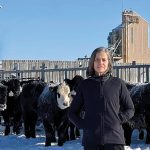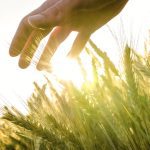
Study indicates methane emissions from dairy farms higher than previously thought

Food companies launch partnership to cut dairy industry’s CO2 emissions

Atlantic ag emissions dropped slightly since 1990: report
Greenhouse gases from cattle, fuel oil dropped; nitrogen, diesel fuel emissions increased

Methane breeding tool’s developers look to long-term
Uptake has been slow among producers, but the discussion on methane efficiency has begun

Seaweed saviour? Marine algae touted as fix for cattle burps
Everyone’s hyped over GHG-fighting seaweed, but is it safe and does it make sense?

Reduce NO2 emissions 30 per cent? No problem, says expert
Nitrification inhibitors and legumes are clear winners but split application not effective in much of Alberta

Cutting fertilizer emissions can be profitable if done sensibly
Report says farmers can boost the bottom line with 4R, but Ottawa’s goal is too much, too fast

Schoepp: The business of carbon credits is murky and risky
The payments are small and the agreements are often complex and ill-defined

Comment: Cutting fertilizer emissions and cutting fertilizer use aren’t the same thing
Critics sow needless concern about federal plans, which are based on policies the industry has been promoting

Canada launches offset credits to help tackle emissions
Landfill gas protocols now launched; ag-related protocols soon to follow

